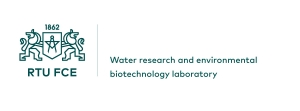This site uses cookies. By continuing to browse the site, you are agreeing to our use of cookies.
OKLearn moreWe may request cookies to be set on your device. We use cookies to let us know when you visit our websites, how you interact with us, to enrich your user experience, and to customize your relationship with our website.
Click on the different category headings to find out more. You can also change some of your preferences. Note that blocking some types of cookies may impact your experience on our websites and the services we are able to offer.
These cookies are strictly necessary to provide you with services available through our website and to use some of its features.
Because these cookies are strictly necessary to deliver the website, you cannot refuse them without impacting how our site functions. You can block or delete them by changing your browser settings and force blocking all cookies on this website.
These cookies collect information that is used either in aggregate form to help us understand how our website is being used or how effective our marketing campaigns are, or to help us customize our website and application for you in order to enhance your experience.
If you do not want that we track your visist to our site you can disable tracking in your browser here:
We also use different external services like Google Webfonts, Google Maps and external Video providers. Since these providers may collect personal data like your IP address we allow you to block them here. Please be aware that this might heavily reduce the functionality and appearance of our site. Changes will take effect once you reload the page.
Google Webfont Settings:
Google Map Settings:
Vimeo and Youtube video embeds:
You can read about our cookies and privacy settings in detail on our Privacy Policy Page.
News
Pilot PoVE Water Showcase, 25.05.2021.
Process of development of the Center of Vocational excellence (CoVE)
Hi-Water project Closing Week, 24-28 May 2021, Online
Special Issue “Water Quality Management in Water Distribution Networks”
12th IWA Eastern European Young Water Professionals Conference
New project on waste management and resource recovery
Latest news in “Zero-to-low-waste technology for simultaneous production of liquid biofuel and biogas from biomass” project
Highlight potential directions for the development of the water technology industry in the iWatermap project
Latest updates in Covid-19 project “Integration of reliable technologies for protection against Covid-19 in healthcare and high-risk areas”
Latest news in “Zero-to-low-waste technology for simultaneous production of liquid biofuel and biogas from biomass” project (No. 1.1.1.1/18/A/075).